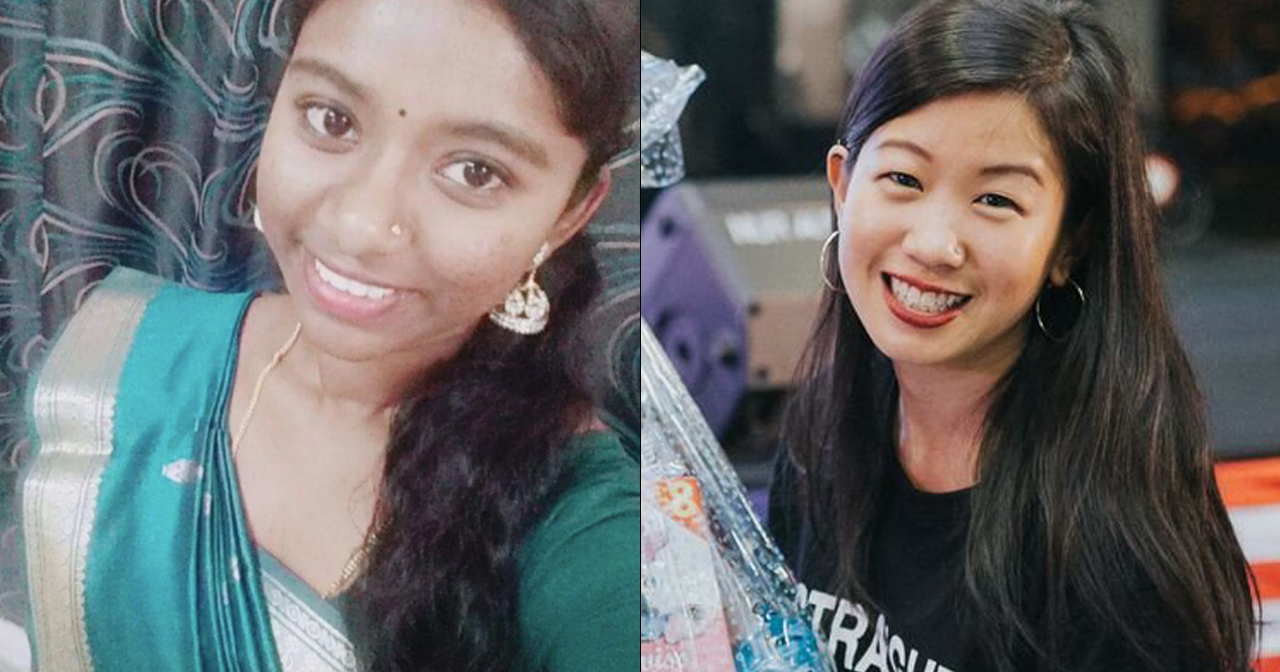
Online Sexual Harassment On The Rise During MCO
The severity of online sexual harassment cannot be undermined — this has been proven in the recent case of Thivya Nayagi, whose cyberbullying and online sexual harassment resulted in her [dying by] suicide.
by All Women's Action Society (AWAM)Cover image via New Straits Times & Twitter_@LimYiWei4MY
Editor's Note: This story has been updated to clarify that Kampung Tunku ADUN Lim Yi Wei did not lodge a police report.
On Saturday, 23 May, Bandar Utama ADUN Jamaliah Jamaluddin and Kampung Tunku ADUN YB Lim Yi Wei received racist, sexist threats and violent threats of rape and murder
Following which, Jamaliah lodged a police report.
The social media user articulating these threats perceived them both as 'Cina DAP'.
'Multiple complaints of sexual harassment'
This is only one of many incidents of online sexual harassment that has come to All Women's Action Society's (AWAM) attention prior to and during the Movement Control Order (MCO).
Throughout the MCO, AWAM has received multiple complaints of sexual harassment.
In fact, 18.5% of all cases which comes through our helpline is made up of sexual harassment cases. Online sexual harassment accounts for 41.7% of these sexual harassment cases.
At least two cases involved those who were sexually harassed by quarantine centre staff — one survivor claims that her hotel room was broken into as the harasser sent her pictures (via her mobile) of her undergarments that were in her room.
Other cases we have received include a survivor who is mentally challenged receiving a picture of animals having sex from her boss and another survivor whose pictures were shared (without her permission) in a WhatsApp group with male members amounting to the hundreds.
The severity of online sexual harassment cannot be undermined — this has been proven in the recent case of Thivya Nayagi, whose cyberbullying and online sexual harassment resulted in her [dying by] suicide.
Increased gender-based online violence amidst social distancing
Online sexual harassment – or sexual cyberharassment – refers to threatening or harassing messages, of a sexual nature, disseminated via emails, instant messaging services, social media platforms or other digital materials that are posted online.
It usually targets a specific person either through direct contact or by the exact opposite methods, such as posting unsavoury content about a said person on social media channels.
Online sexual harassment also includes the act of threatening to disseminate personal information or materials of a sexual nature that will cause the person being threatened to feel humiliated, offended, or threatened.
Online sexual harassment is particularly harmful in the sense that it causes alarm and distress, compromising a person's mental integrity at a time where people are dealing with psychosocial issues, financial issues, and job insecurity during the MCO.
This form of gender-based online violence is increasing as more people are now resorting to online media and communications, as a result of social distancing.
Taking advantage of online anonymity.
Many are taking advantage of the fact that they can be anonymous online and thus express their feelings of discontent through sexist comments, jokes, and in some cases, sexual harassment.
This fact also serves to highlight that there is not enough enforcement focused on online cyberbullying and harassment. Sterner measures must be taken both by the police and the Malaysian Communications and Multimedia Commission (MCMC).
A prevention tool
The Sexual Harassment Bill and the proposed Anti-Stalking amendment to the Penal Code would go a long way in giving survivors security and most importantly, to demand accountability through a legal process where their personal, physical, mental, and emotional security has been threatened or compromised.
It would also serve as a prevention tool and teach Malaysians to have respect for their fellow citizens in all spaces, online or otherwise.
A joint effort needed by the Royal Malaysia Police (PDRM) and the MCMC
AWAM urges IGP Abdul Hamid Bador and the MCMC to work together to investigate these cases as soon as possible so that the survivors may return to their day-to-day activities without fear of sexual harassment.
The lack of accountability that is often perceived as social permission in cases of online sexual harassment, reinforces ideas that devalue and sexualise women and is very likely to be replicated in real life as well.
Authorities must nip this social ill in the bud before it becomes a huge societal problem that will be even more difficult and complicated to handle.